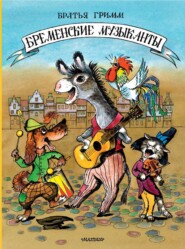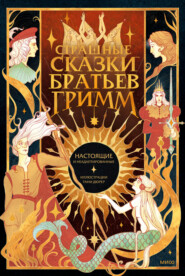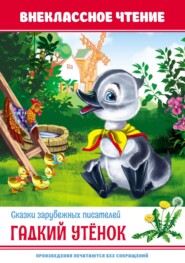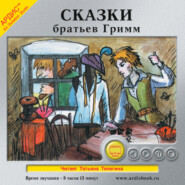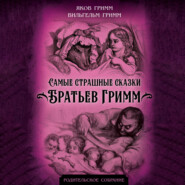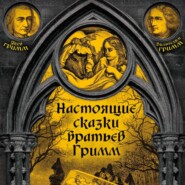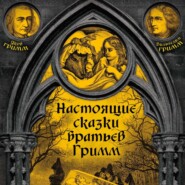По всем вопросам обращайтесь на: info@litportal.ru
(©) 2003-2024.
✖
Household Tales by Brothers Grimm
Настройки чтения
Размер шрифта
Высота строк
Поля
Before long they came to a cat, sitting on the path, with a face like three rainy days! "Now then, old shaver, what has gone askew with you?" asked the donkey.
"Who can be merry when his neck is in danger?" answered the cat. "Because I am now getting old, and my teeth are worn to stumps, and I prefer to sit by the fire and spin, rather than hunt about after mice, my mistress wanted to drown me, so I ran away. But now good advice is scarce. Where am I to go?"
"Go with us to Bremen. You understand night-music, you can be a town-musician."
The cat thought well of it, and went with them. After this the three fugitives came to a farm-yard, where the cock was sitting upon the gate, crowing with all his might. "Your crow goes through and through one," said the donkey. "What is the matter?"
"I have been foretelling fine weather, because it is the day on which Our Lady washes the Christ-child's little shirts, and wants to dry them," said the cock; "but guests are coming for Sunday, so the housewife has no pity, and has told the cook that she intends to eat me in the soup to-morrow, and this evening I am to have my head cut off. Now I am crowing at full pitch while I can."
"Ah, but red-comb," said the donkey, "you had better come away with us. We are going to Bremen; you can find something better than death everywhere: you have a good voice, and if we make music together it must have some quality!"
The cock agreed to this plan, and all four went on together. They could not, however, reach the city of Bremen in one day, and in the evening they came to a forest where they meant to pass the night. The donkey and the hound laid themselves down under a large tree, the cat and the cock settled themselves in the branches; but the cock flew right to the top, where he was most safe. Before he went to sleep he looked round on all four sides, and thought he saw in the distance a little spark burning; so he called out to his companions that there must be a house not far off, for he saw a light. The donkey said, "If so, we had better get up and go on, for the shelter here is bad." The hound thought that a few bones with some meat on would do him good too!
So they made their way to the place where the light was, and soon saw it shine brighter and grow larger, until they came to a well-lighted robber's house. The donkey, as the biggest, went to the window and looked in.
"What do you see, my grey-horse?" asked the cock. "What do I see?" answered the donkey; "a table covered with good things to eat and drink, and robbers sitting at it enjoying themselves." "That would be the sort of thing for us," said the cock. "Yes, yes; ah, how I wish we were there!" said the donkey.
Then the animals took counsel together how they should manage to drive away the robbers, and at last they thought of a plan. The donkey was to place himself with his fore-feet upon the window-ledge, the hound was to jump on the donkey's back, the cat was to climb upon the dog, and lastly the cock was to fly up and perch upon the head of the cat.
When this was done, at a given signal, they began to perform their music together: the donkey brayed, the hound barked, the cat mewed, and the cock crowed; then they burst through the window into the room, so that the glass clattered! At this horrible din, the robbers sprang up, thinking no otherwise than that a ghost had come in, and fled in a great fright out into the forest. The four companions now sat down at the table, well content with what was left, and ate as if they were going to fast for a month.
As soon as the four minstrels had done, they put out the light, and each sought for himself a sleeping-place according to his nature and to what suited him. The donkey laid himself down upon some straw in the yard, the hound behind the door, the cat upon the hearth near the warm ashes, and the cock perched himself upon a beam of the roof; and being tired from their long walk, they soon went to sleep.
When it was past midnight, and the robbers saw from afar that the light was no longer burning in their house, and all appeared quiet, the captain said, "We ought not to have let ourselves be frightened out of our wits;" and ordered one of them to go and examine the house.
The messenger finding all still, went into the kitchen to light a candle, and, taking the glistening fiery eyes of the cat for live coals, he held a lucifer-match to them to light it. But the cat did not understand the joke, and flew in his face, spitting and scratching. He was dreadfully frightened, and ran to the back-door, but the dog, who lay there sprang up and bit his leg; and as he ran across the yard by the straw-heap, the donkey gave him a smart kick with its hind foot. The cock, too, who had been awakened by the noise, and had become lively, cried down from the beam, "Cock-a-doodle-doo!"
Then the robber ran back as fast as he could to his captain, and said, "Ah, there is a horrible witch sitting in the house, who spat on me and scratched my face with her long claws; and by the door stands a man with a knife, who stabbed me in the leg; and in the yard there lies a black monster, who beat me with a wooden club; and above, upon the roof, sits the judge, who called out, 'Bring the rogue here to me!' so I got away as well as I could."
After this the robbers did not trust themselves in the house again; but it suited the four musicians of Bremen so well that they did not care to leave it any more. And the mouth of him who last told this story is still warm.
28 The Singing Bone
In a certain country there was once great lamentation over a wild boar that laid waste the farmer's fields, killed the cattle, and ripped up people's bodies with his tusks. The King promised a large reward to anyone who would free the land from this plague; but the beast was so big and strong that no one dared to go near the forest in which it lived. At last the King gave notice that whosoever should capture or kill the wild boar should have his only daughter to wife.
Now there lived in the country two brothers, sons of a poor man, who declared themselves willing to undertake the hazardous enterprise; the elder, who was crafty and shrewd, out of pride; the younger, who was innocent and simple, from a kind heart. The King said, "In order that you may be the more sure of finding the beast, you must go into the forest from opposite sides." So the elder went in on the west side, and the younger on the east.
When the younger had gone a short way, a little man stepped up to him. He held in his hand a black spear and said, "I give you this spear because your heart is pure and good; with this you can boldly attack the wild boar, and it will do you no harm."
He thanked the little man, shouldered the spear, and went on fearlessly.
Before long he saw the beast, which rushed at him; but he held the spear towards it, and in its blind fury it ran so swiftly against it that its heart was cloven in twain. Then he took the monster on his back and went homewards with it to the King.
As he came out at the other side of the wood, there stood at the entrance a house where people were making merry with wine and dancing. His elder brother had gone in here, and, thinking that after all the boar would not run away from him, was going to drink until he felt brave. But when he saw his young brother coming out of the wood laden with his booty, his envious, evil heart gave him no peace. He called out to him, "Come in, dear brother, rest and refresh yourself with a cup of wine."
The youth, who suspected no evil, went in and told him about the good little man who had given him the spear wherewith he had slain the boar.
The elder brother kept him there until the evening, and then they went away together, and when in the darkness they came to a bridge over a brook, the elder brother let the other go first; and when he was half-way across he gave him such a blow from behind that he fell down dead. He buried him beneath the bridge, took the boar, and carried it to the King, pretending that he had killed it; whereupon he obtained the King's daughter in marriage. And when his younger brother did not come back he said, "The boar must have killed him," and every one believed it.
But as nothing remains hidden from God, so this black deed also was to come to light.
Years afterwards a shepherd was driving his herd across the bridge, and saw lying in the sand beneath, a snow-white little bone. He thought that it would make a good mouth-piece, so he clambered down, picked it up, and cut out of it a mouth-piece for his horn. But when he blew through it for the first time, to his great astonishment, the bone began of its own accord to sing:
"Ah, friend, thou blowest upon my bone!
Long have I lain beside the water;
My brother slew me for the boar,
And took for his wife the King's young daughter."
"What a wonderful horn!" said the shepherd; "it sings by itself; I must take it to my lord the King." And when he came with it to the King the horn again began to sing its little song. The King understood it all, and caused the ground below the bridge to be dug up, and then the whole skeleton of the murdered man came to light. The wicked brother could not deny the deed, and was sewn up in a sack and drowned. But the bones of the murdered man were laid to rest in a beautiful tomb in the churchyard.
29 The Devil With the Three Golden Hairs
There was once a poor woman who gave birth to a little son; and as he came into the world with a caul on, it was predicted that in his fourteenth year he would have the King's daughter for his wife. It happened that soon afterwards the King came into the village, and no one knew that he was the King, and when he asked the people what news there was, they answered, "A child has just been born with a caul on; whatever any one so born undertakes turns out well. It is prophesied, too, that in his fourteenth year he will have the King's daughter for his wife."
The King, who had a bad heart, and was angry about the prophecy, went to the parents, and, seeming quite friendly, said, "You poor people, let me have your child, and I will take care of it." At first they refused, but when the stranger offered them a large amount of gold for it, and they thought, "It is a luck-child, and everything must turn out well for it," they at last consented, and gave him the child.
The King put it in a box and rode away with it until he came to a deep piece of water; then he threw the box into it and thought, "I have freed my daughter from her unlooked-for suitor."
The box, however, did not sink, but floated like a boat, and not a drop of water made its way into it. And it floated to within two miles of the King's chief city, where there was a mill, and it came to a stand-still at the mill-dam. A miller's boy, who by good luck was standing there, noticed it and pulled it out with a hook, thinking that he had found a great treasure, but when he opened it there lay a pretty boy inside, quite fresh and lively. He took him to the miller and his wife, and as they had no children they were glad, and said, "God has given him to us." They took great care of the foundling, and he grew up in all goodness.
It happened that once in a storm, the King went into the mill, and he asked the mill-folk if the tall youth was their son. "No," answered they, "he's a foundling. Fourteen years ago he floated down to the mill-dam in a box, and the mill-boy pulled him out of the water."
Then the King knew that it was none other than the luck-child which he had thrown into the water, and he said, "My good people, could not the youth take a letter to the Queen; I will give him two gold pieces as a reward?" "Just as the King commands," answered they, and they told the boy to hold himself in readiness. Then the King wrote a letter to the Queen, wherein he said, "As soon as the boy arrives with this letter, let him be killed and buried, and all must be done before I come home."
The boy set out with this letter; but he lost his way, and in the evening came to a large forest. In the darkness he saw a small light; he went towards it and reached a cottage. When he went in, an old woman was sitting by the fire quite alone. She started when she saw the boy, and said, "Whence do you come, and whither are you going?" "I come from the mill," he answered, "and wish to go to the Queen, to whom I am taking a letter; but as I have lost my way in the forest I should like to stay here over night." "You poor boy," said the woman, "you have come into a den of thieves, and when they come home they will kill you." "Let them come," said the boy, "I am not afraid; but I am so tired that I cannot go any farther: " and he stretched himself upon a bench and fell asleep.
Soon afterwards the robbers came, and angrily asked what strange boy was lying there? "Ah," said the old woman, "it is an innocent child who has lost himself in the forest, and out of pity I have let him come in; he has to take a letter to the Queen." The robbers opened the letter and read it, and in it was written that the boy as soon as he arrived should be put to death. Then the hard-hearted robbers felt pity, and their leader tore up the letter and wrote another, saying, that as soon as the boy came, he should be married at once to the King's daughter. Then they let him lie quietly on the bench until the next morning, and when he awoke they gave him the letter, and showed him the right way.
And the Queen, when she had received the letter and read it, did as was written in it, and had a splendid wedding-feast prepared, and the King's daughter was married to the luck-child, and as the youth was handsome and agreeable she lived with him in joy and contentment.
After some time the King returned to his palace and saw that the prophecy was fulfilled, and the luck-child married to his daughter. "How has that come to pass?" said he; "I gave quite another order in my letter."
So the Queen gave him the letter, and said that he might see for himself what was written in it. The King read the letter and saw quite well that it had been exchanged for the other. He asked the youth what had become of the letter entrusted to him, and why he had brought another instead of it. "I know nothing about it," answered he; "it must have been changed in the night, when I slept in the forest." The King said in a passion, "You shall not have everything quite so much your own way; whosoever marries my daughter must fetch me from hell three golden hairs from the head of the devil; bring me what I want, and you shall keep my daughter." In this way the King hoped to be rid of him for ever. But the luck-child answered, "I will fetch the golden hairs, I am not afraid of the Devil;" thereupon he took leave of them and began his journey.
The road led him to a large town, where the watchman by the gates asked him what his trade was, and what he knew. "I know everything," answered the luck-child. "Then you can do us a favour," said the watchman, "if you will tell us why our market-fountain, which once flowed with wine has become dry, and no longer gives even water?" "That you shall know," answered he; "only wait until I come back."
Then he went farther and came to another town, and there also the gatekeeper asked him what was his trade, and what he knew. "I know everything," answered he. "Then you can do us a favour and tell us why a tree in our town which once bore golden apples now does not even put forth leaves?" "You shall know that," answered he; "only wait until I come back."
Then he went on and came to a wide river over which he must go. The ferryman asked him what his trade was, and what he knew. "I know everything," answered he. "Then you can do me a favour," said the ferryman, "and tell me why I must always be rowing backwards and forwards, and am never set free?" "You shall know that," answered he; "only wait until I come back."
When he had crossed the water he found the entrance to Hell. It was black and sooty within, and the Devil was not at home, but his grandmother was sitting in a large arm-chair. "What do you want?" said she to him, but she did not look so very wicked. "I should like to have three golden hairs from the devil's head," answered he, "else I cannot keep my wife." "That is a good deal to ask for," said she; "if the devil comes home and finds you, it will cost you your life; but as I pity you, I will see if I cannot help you."
She changed him into an ant and said, "Creep into the folds of my dress, you will be safe there." "Yes," answered he, "so far, so good; but there are three things besides that I want to know: why a fountain which once flowed with wine has become dry, and no longer gives even water; why a tree which once bore golden apples does not even put forth leaves; and why a ferry-man must always be going backwards and forwards, and is never set free?"
"Those are difficult questions," answered she, "but only be silent and quiet and pay attention to what the devil says when I pull out the three golden hairs."
As the evening came on, the devil returned home. No sooner had he entered than he noticed that the air was not pure. "I smell man's flesh," said he; "all is not right here." Then he pried into every corner, and searched, but could not find anything. His grandmother scolded him. "It has just been swept," said she, "and everything put in order, and now you are upsetting it again; you have always got man's flesh in your nose. Sit down and eat your supper."









